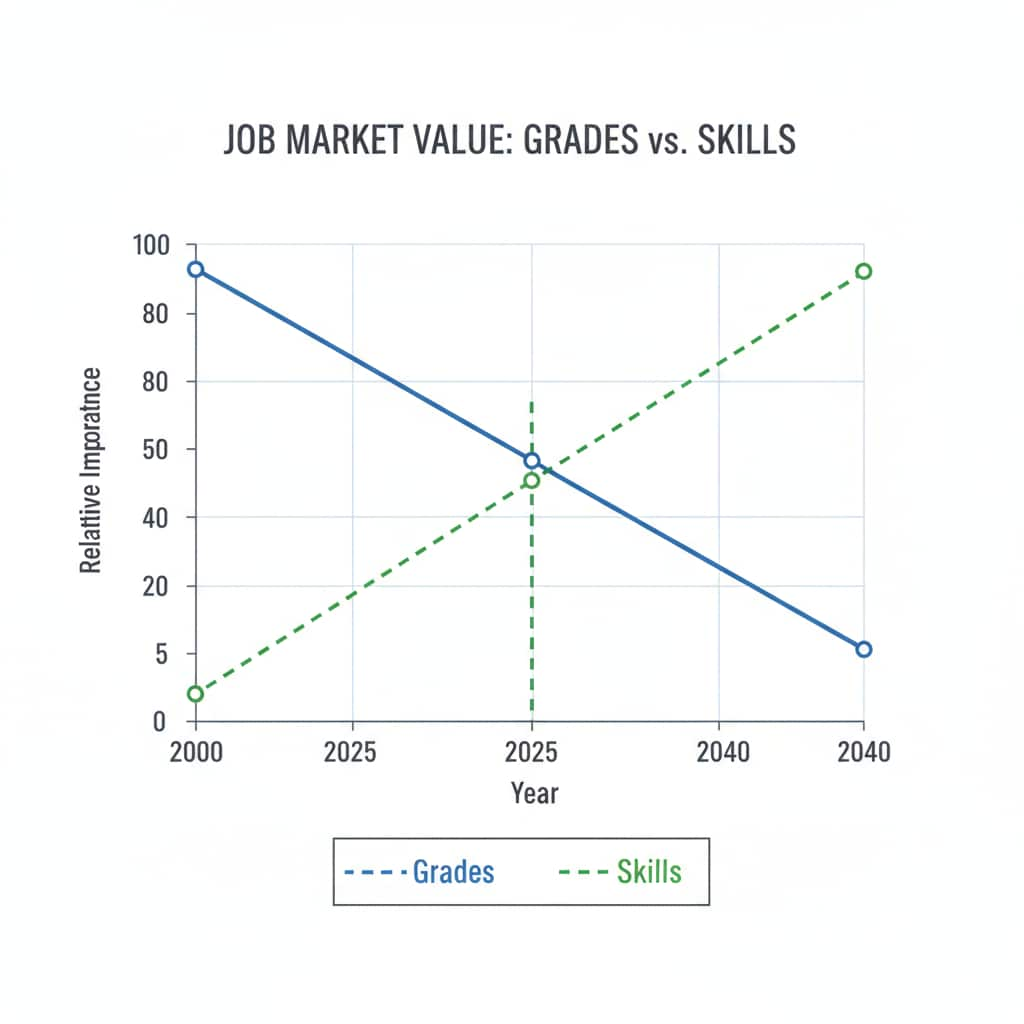University grades, employment, and workplace value are intricately linked aspects that shape a student’s transition from academia to the professional world. In today’s competitive job market, the age-old question persists: Do the A+ grades on a college transcript truly translate into a coveted job? Let’s explore this further.

The Myth of Straight A’s and Dream Jobs
For years, students have been indoctrinated with the belief that achieving high grades is the golden ticket to a successful career. However, the reality in the job market is far more complex. While good grades can open doors initially, they are often just the first step. According to Britannica’s education resources, employers today are looking for a diverse set of skills beyond academic achievements. For example, they highly value practical experience, problem-solving abilities, and communication skills. A student with a perfect GPA might struggle to secure a job if they lack these essential soft skills.

The Rise of Practical Competence
In addition to academic performance, practical competence has become a key determinant in the employment landscape. Internships, co-op programs, and hands-on projects are now highly regarded by employers. These experiences allow students to apply theoretical knowledge in real-world settings, enhancing their understanding of the industry. As a result, candidates with relevant practical experience stand out in the job application process. For instance, a computer science student who has worked on open-source projects during their college years is likely to be more appealing to tech companies than one with only high grades but no practical exposure. Wikipedia’s page on internships further elaborates on the significance of such experiences in the modern job market.
The current education system, however, often places excessive emphasis on grades at the expense of practical skills development. This misalignment between what schools teach and what employers seek can leave graduates ill-prepared for the workplace. It’s high time we reevaluate how we educate students in the K12 and college phases to better equip them with the skills needed for successful careers.
Readability guidance: As we’ve seen, the relationship between university grades, employment, and workplace value is multi-faceted. While grades have their place, practical skills and overall competence are equally, if not more, important. By understanding this, students can take proactive steps to build a well-rounded skill set that will serve them well in the job market.


